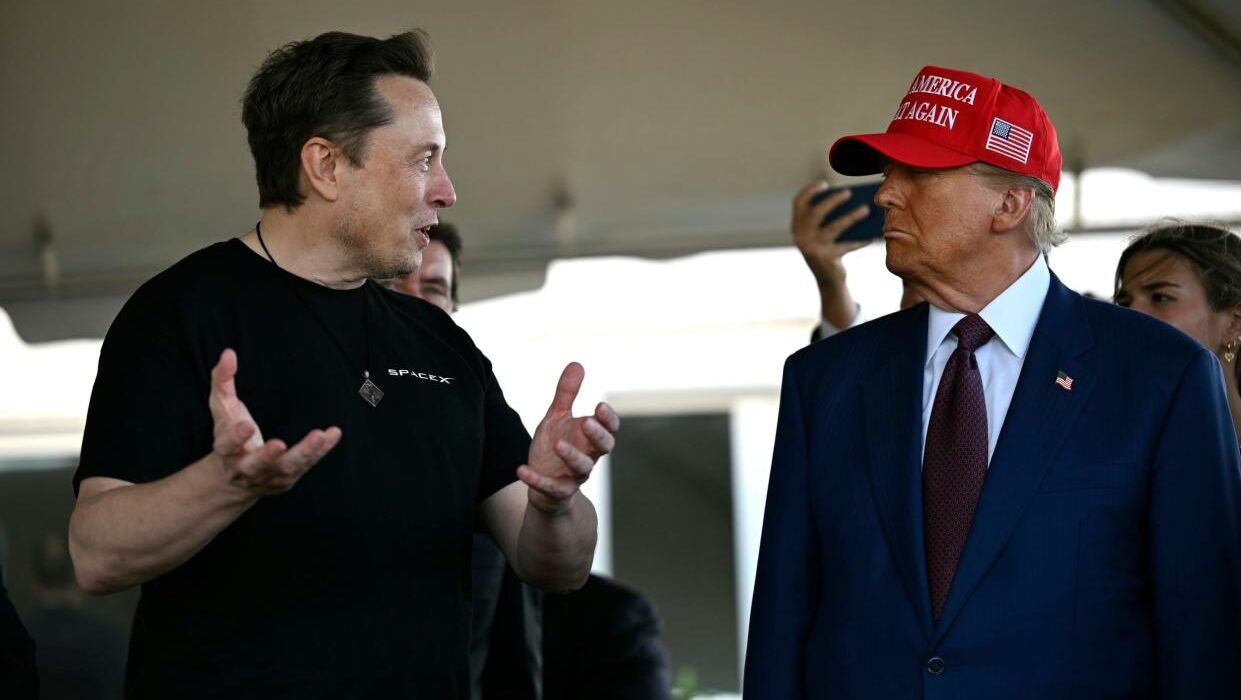Former White House advisor and tech mogul, Elon Musk, known for his groundbreaking innovations in the world of electric cars and space travel, found himself in the midst of a political storm as he took aim at President Donald Trump’s latest tax and spending package.
In a fiery social media post on X, a platform under his ownership, Musk didn’t mince words when he labeled the bill as a “disgusting abomination.” His scathing critique wasn’t just an ordinary jab; it was a full-blown condemnation of what he perceived as reckless fiscal irresponsibility within the corridors of power.
“Shame on those who voted for it: you know you did wrong. You know it,” Musk’s words reverberated through the digital sphere, resonating with many who shared his concerns about government overspending.
This public denouncement marked a significant departure for Musk from his previous proximity to the President. Having recently stepped down from his position overseeing Government Efficiency initiatives aimed at streamlining federal operations, Musk now found himself squarely at odds with Trump over this contentious legislative move.
Amidst swirling debates about deficits and national debt, Musk raised pertinent questions about the implications of such lavish spending on future generations. He warned that the bill could catapult America further into financial turmoil by saddling citizens with unsustainable debt burdens.
“Congress is making America bankrupt,”
declared Musk emphatically, echoing sentiments that struck a chord with fiscal conservatives and concerned citizens alike. His outspokenness ignited a fresh wave of discourse surrounding the bill’s potential ramifications on the country’s economic well-being.
While White House officials scrambled to defend their stance on the bill during press briefings, Musk’s criticisms loomed large over the narrative. Even House Speaker Mike Johnson felt compelled to address Musk’s remarks directly, underscoring the gravity of this high-profile clash between industry titan and political establishment.
As reactions poured in from across party lines, it became evident that Musk had galvanized a cohort of like-minded lawmakers who shared his apprehensions about unchecked government spending. Senators like Mike Lee and Rand Paul publicly echoed his sentiments, calling for amendments to strengthen fiscal responsibility within the proposed legislation.
The ripple effects of Musk’s dissent extended beyond Capitol Hill as even staunch allies of President Trump voiced unease over certain hidden provisions buried deep within the bill. Representative Marjorie Taylor Greene expressed regret over her initial support after discovering clauses that encroached upon states’ rights regarding artificial intelligence regulation—a revelation that sparked further controversy surrounding the opaque nature of legislative negotiations.
In this clash between innovation and governance, Elon Musk emerged as an unexpected voice challenging conventional wisdom and pushing back against what he deemed detrimental policy choices. As tensions simmered both online and offline, one thing remained clear—when two influential figures collide over matters of national significance—everyone takes notice.

